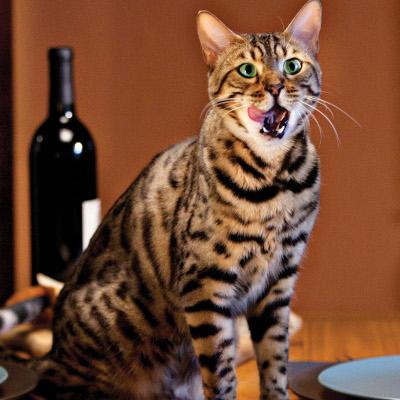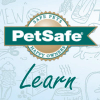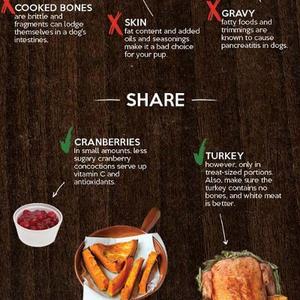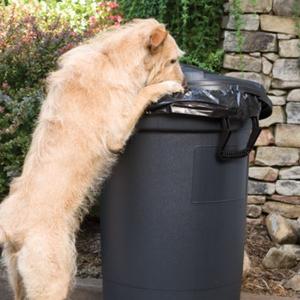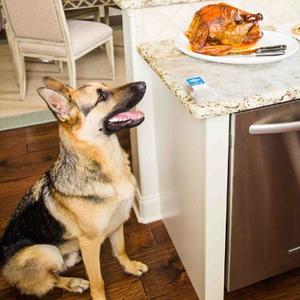Pet owners are pretty savvy these days, and thanks to the internet, information about pet health and toxins is pretty widely available. There's a heap of bad information, too, so be careful what you read and check your sources. Most pet owners in-the-know are aware of antifreeze, chocolate, and rat poison, and know about several other possible toxins that can affect pets like human prescription and over the counter medications. Despite this, there are a few items that are found in most homes that can be toxic to pets, and I'm always surprised that more people aren't aware of them. I've treated patients poisoned with each one of these substances, so the threat is very real.
Your family veterinarian is a great resource when dealing with a potentially toxic substance. They can help determine  what to do and what the chances are for successful treatment when faced with a poisoning. Another great resource to have on hand is the phone number or website for an animal poison control center.
what to do and what the chances are for successful treatment when faced with a poisoning. Another great resource to have on hand is the phone number or website for an animal poison control center.
- ASPCA Animal Poison Control - (888)426-4435
- Pet Poison Helpline - (855) 764-7661
In the interest of protecting your pet against some of the lesser-known toxins, I present here the 'B list' of pet poisonings - things that you probably have in your home right now that could pose an unexpected hazard to your pet.
- Compost: Pets always love to roll in smelly stuff, and there's nothing smellier than compost. As it sits in the sun and degrades to that rich, black stuff that's so good on your garden, some fungi are also in there producing an array of pretty powerful toxins. Signs that your pet ate compost include severe vomiting, seizures, and liver damage. Make sure that your compost pile is fenced off and secure and that your dog can't access any of it when you spread it on the garden.
- Potpourri: Liquid potpourri is pretty popular, especially around the holidays. Pets can be drawn to the exotic scents and ingest a toxic amount in just a few licks. They may smell good, but most liquid potpourri contains oils and chemicals that can cause liver damage, particularly in cats. In general, cats will avoid most toxins as they tend to eat fewer unknown substances than dogs do, but this is one exception. Keep liquid or simmering potpourri well out
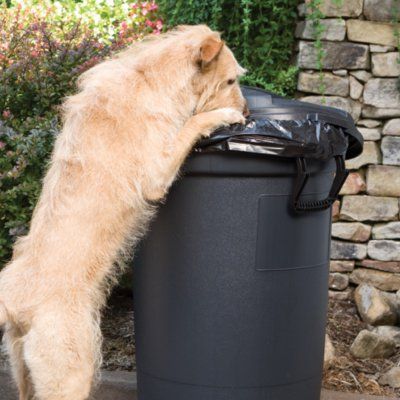
of reach, and remember that cats can jump and climb to just about any point they choose. A plug-in diffuser may be a safer choice if you have pets.
- Xylitol: Found in many sugar-free products, especially gum, xylitol is one of the newer toxins out there and it can be quite deadly. It affects pets in 2 ways: it can drop blood sugar to dangerously low levels, and it can also cause liver damage. The reason the liver is involved in so many poisons is that its job is to detoxify many substances. When a poison's eaten, it just gets overwhelmed. Signs of xylitol poisoning include staggering, dilated pupils, unresponsiveness, and seizures. Treatment can reverse it, but this often involves several days in the hospital, and liver damage may be irreversible in some cases. If your dog gets into sugar-free gum, call your veterinarian or veterinary ER right away and make sure your gum is safely out or reach of pets.
- Albuterol: Found in asthma inhalers, albuterol is a potent medication that is designed to open up airways in the lungs during an asthma attack. If a dog tries to eat an inhaler, which happens more commonly than you'd think, they can get a massive dose of compressed albuterol directed right down their throat. Seizures, dangerously high blood pressure, and electrolyte problems can happen right away after they are exposed. Treatment in the hospital is usually needed, and in most cases will counteract the effects of the medication quickly. Make sure inhalers are kept well away from the prying and curious noses of dogs.
- Raisins & grapes: I'm not a raisin lover, and now I have a medical reason to back up my distaste for them: raisins an
 d grapes can be lethally toxic to dogs. No one knows what the substance is in grapes and raisins that causes problems because grape and raisin toxicity is a relatively recent addition to this list. The problem is that some grapes cause problems while others don't, and there's no way to tell which is which. The toxin affects the kidneys and can cause them to shut down in as little as 6-8 hours after ingestion. I had one patient who ate a large quantity of grapes and went into kidney failure. He needed dialysis for several weeks as his kidneys healed. Although he made a full recovery, his care was very expensive and time-consuming for the pet owners. If your pet eats more than a few grapes or raisins, contact your veterinarian for advice.
d grapes can be lethally toxic to dogs. No one knows what the substance is in grapes and raisins that causes problems because grape and raisin toxicity is a relatively recent addition to this list. The problem is that some grapes cause problems while others don't, and there's no way to tell which is which. The toxin affects the kidneys and can cause them to shut down in as little as 6-8 hours after ingestion. I had one patient who ate a large quantity of grapes and went into kidney failure. He needed dialysis for several weeks as his kidneys healed. Although he made a full recovery, his care was very expensive and time-consuming for the pet owners. If your pet eats more than a few grapes or raisins, contact your veterinarian for advice.
To a dog, the world is edible until proven otherwise. The best strategy for preventing an accidental poisoning is to keep all of these toxins out of reach and securely away from your pets. This is just a small sample of the things that can be potentially poisonous to your pet. If your dog or cat eats something that could be a hazard and you're not sure what to do, call your vet or poison control and ask for help.

